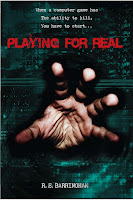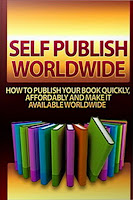But they are completely wrong for looking at their time this way.
I’ve been a writer for over 20 years, and I earn all my income from my writing, so I know what I’m talking about.
Don’t get me wrong, knowing how fast you can write is important, but there’s one thing that’s crucial.
If you want to get more writing done in the time that’s available to you, you must protect your time. You must preserve your time. And you must not, under any circumstances, let anyone steal your time.
Let me explain what I mean.
When I first began writing, I had a full-time job and a family to look after, so I had to squeeze my writing in whenever I could, which usually meant writing in the evenings or at weekends.
Eventually, I managed to earn enough money from my writing so that I could change to a part-time job, and when I was earning enough from my writing, I quit my job altogether.
It was a long and laborious process, and the hardest thing was protecting my writing time.
It seemed like every time I wanted to write, the universe had other ideas. One of the kids would get sick or an emergency home repair needed doing, or the dog had to go to the vet, or a friend or family member would need my help with something.
There always seemed to be something to interrupt my writing time. And let me tell you, if you try and say to someone that you’re too busy writing to help them, they do NOT like it.
Friends and family were quite scornful and mocking about my wanting to be a writer. Even now, so many years later, no one ever wants to talk about my writing, and if I mention it, they quickly change the subject. It’s as though it’s taboo to mention my writing.
One day, when I was visiting my father, I saw a magazine on the coffee table. I opened it to one of the feature articles and said, “Look. That’s my article. I wrote that and it was published this week. See?”
My father’s wife leaned forward, closed the magazine, and said, “Right, who wants coffee?”
I was so hurt (and confused). I thought surely when I pointed out one of my published articles in a magazine they might have at least been interested or maybe even smiled. Instead they gave each other a quick sideways glance and pretended I hadn’t said anything.
And it’s this attitude that other people always seem to have and they think that your writing time isn’t important. So they think nothing of taking it from you and using it for their own gain. For a long time, people that I knew thought my writing was a joke, even though I was being published regularly, had set up and was running a writing website, and had thousands of subscribers. Try telling your friends you don’t want to go out drinking with them because you want to go home and write a short story and see what happens. They won’t like it at all.
This is why it’s important to train your friends and family to respect your writing time, and don’t be afraid to tell them that you’re too busy to talk on the phone, or to go for a coffee or to go to lunch. Once you start saying no to them it’s amazing how quickly they stop asking.
And when you’ve trained them to leave you alone, and you get to write more, the most amazing thing happens.
As you write more, it gets easier and faster. It’s just like anything we do repeatedly. It takes far less effort, and becomes quicker.
Having a strict writing schedule helps too because it not only makes sure that you have time to write, but once others know it’s your writing time and that it’s off-limits to them, they’ll leave you alone.
Don’t let others steal your writing time. They’ll never give it back. And it’s far too precious and important to lose.
P.S. Don’t let emails and social media steal your writing time either.
https://www.cheritonhousepublishing.com/books/MCWS1.html









